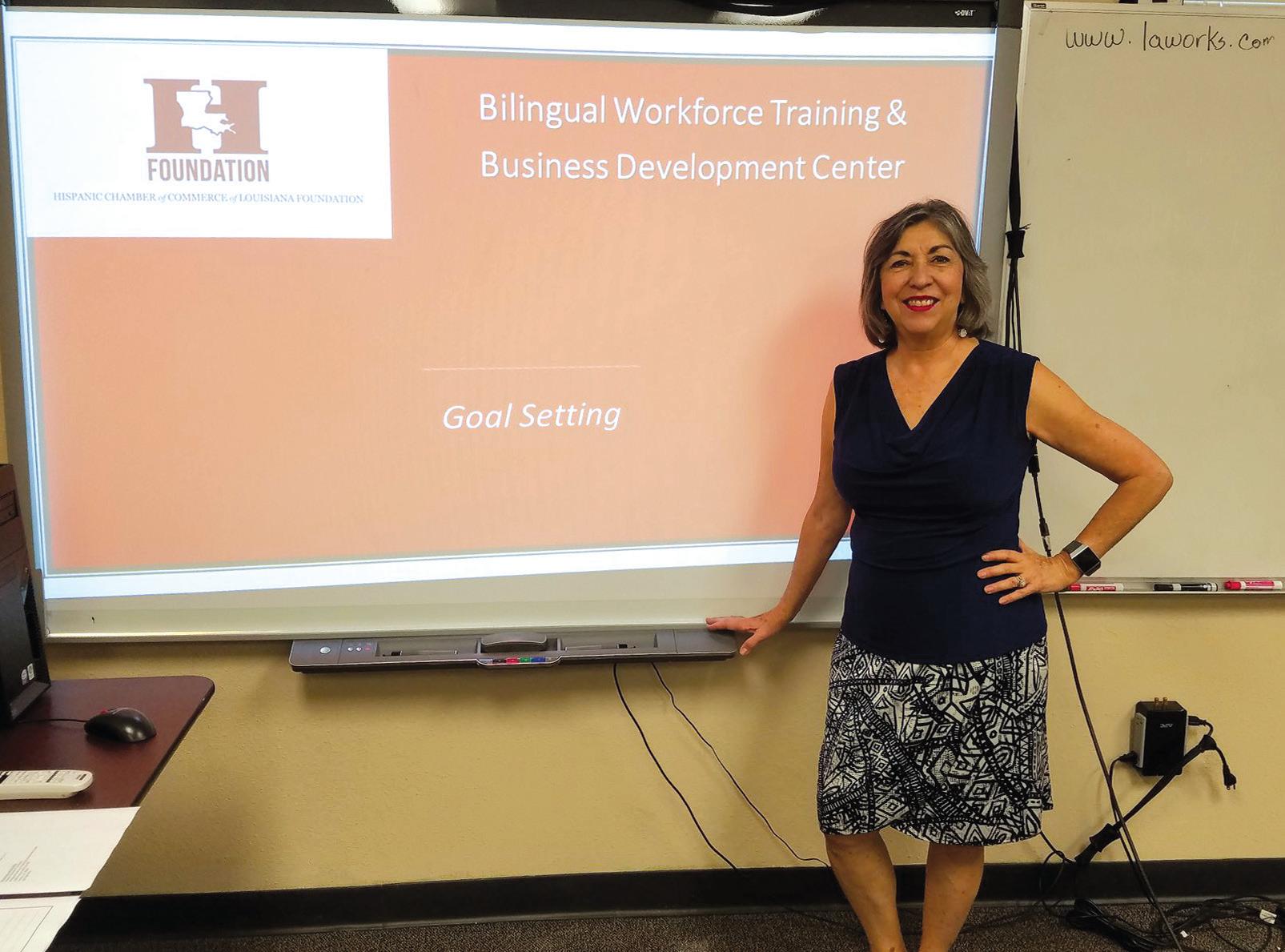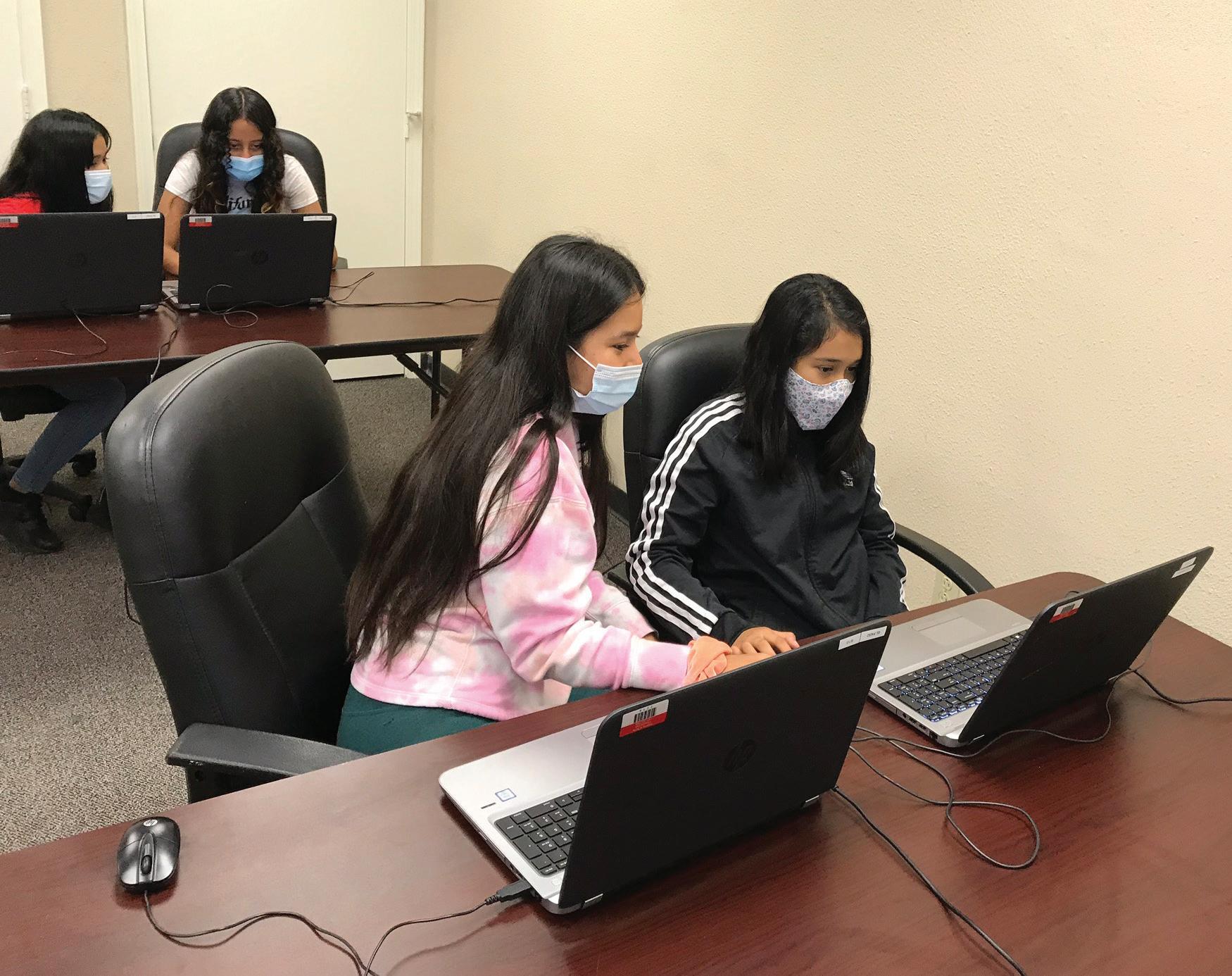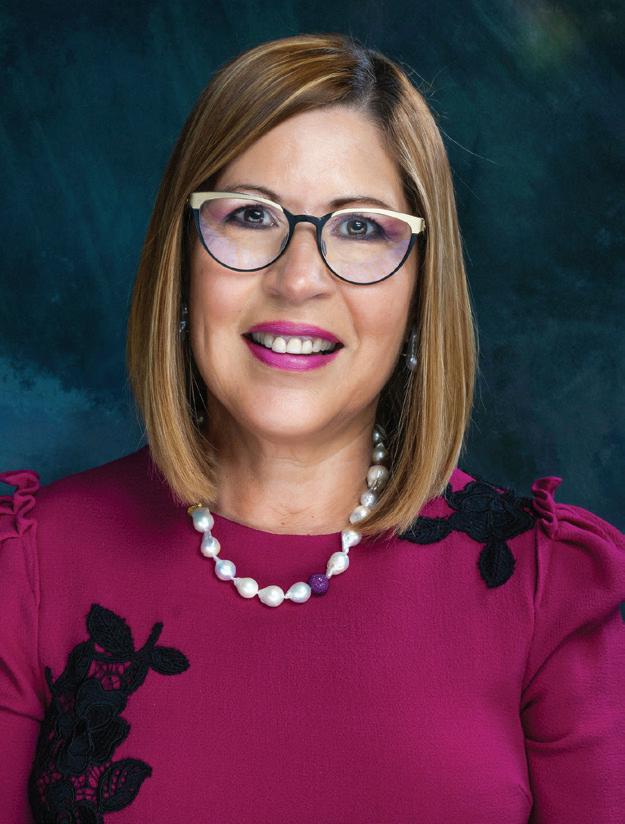
6 minute read
HCCL Foundation: Achivement Through Education
BUILDING BRIDGES and CLOSING DIVIDES
HCCLF and community partners empower Hispanic professionals with translation services and technological education
Imagine sitting down at a computer to apply for a job. Now imagine that everything from job descriptions to applications and interviews — even the programs required to perform the job duties — are in a language you’ve never learned, on systems you’ve never been trained to use.
Louisiana’s Hispanic population has nearly doubled in size since 2000, and with that growth comes an increased presence of Hispanic-owned workers and businesses in the area. However, many members of this expanding community still encounter roadblocks on the way to employment.
One in three Louisianans lack a home internet connection, and those who haven’t learned the ins-and-outs of basic technology risk losing out on key educational and professional opportunities. Those without computers or Internet access must often turn to public resources like libraries, where language barriers further prevent many members of the Hispanic population from asking for or receiving assistance.
To pave the way for professional success, The Hispanic Chamber of Commerce of Louisiana Foundation (HCCLF) and its parent organization, The Hispanic Chamber of Commerce of Louisiana (HCCL), have rolled out several educational and business development initiatives to bridge the gap between the skilled Hispanic workforce and opportunities available in the region.
The Translation Taskforce
The onset of COVID-19 made the need for minority-targeted resources even greater, as businesses, organizations and families worldwide adjusted to a changing business climate. First and foremost, HCCL and HCCLF formed a collaborative ad-hoc translation committee to assist with applications and legal paperwork. This was added to an existing docket of Foundation initiatives including English as a Second Language (ESL) classes, career counseling, resume and cover letter writing assistance, and interview preparation courses.
“Along with the Hispanic Chamber, we have provided translations on important governmental directives and daily information about the COVID-19 testing sites and food banks,” says


Angelica Rivera, HCCLF Chairperson. “I have been personally involved with assisting individuals with completion of their applications for food stamps, unemployment, and PEBT card applications.”
Rivera explains that stepping into that role was a significant step for both the Chamber and the Foundation, as the need for government aid became more and more prevalent as the pandemic went on. Applying for assistance can be a cause for stress and anxiety even for those familiar with the process, but for individuals who face an added language barrier, the task can seem insurmountable.
“Our demographic is comprised of a majority of low-to-moderate income individuals who cannot read or speak English,” Rivera says. “The applications and websites to complete applications were a challenge for those who lack computer skills or cannot read in English. This was a personal cause I valued beyond measure.” Digital Literacy Program
Even once language barriers are overcome, a lack of training in modern digital tools stands in the way of many minority professionals finding and securing a position. HCCLF has long been focused on bridging this digital divide with the help of local corporate partners like Delgado University, Cox Communications, the Hispanic Apostolate of the Catholic Diocese of Baton Rouge, and many others.
This year, HCCLF was able to train even more Hispanic workers through a generous partnership with Verizon and UnidosUS, which offered the Chamber a $100,000 grant to fund and expand its resources. In addition to bolstering signature HCCL programs like Bilingual Workforce Training and Business Development Program, the contribution from Verizon and UnidosUS allowed HCCLF to host a new series of digital literacy courses.
Tandra LeMay, Verizon’s Louisiana State Government Affairs Director, described the collaborative program as a “toolkit” that would elevate a participant’s skillset in seven different arenas, including financial capability, digital literacy, job readiness, communication, job search, and technology jobs.
“According to a 2018 study by Pew Research Center, Hispanics account for 16% of the US workforce, but they only represent 7% of all STEM workers,” says LeMay. “The digital learning centers were equipped with mobile technologies, curriculum, and professional services to help program participants become digitally competent.”
While initial “cohorts” of the digital literacy program were held in-person, classes pivoted to an online format in order to continue offering valuable education when social distancing mandates limited the possibility for physical classes. For those without computers, HCCLF’s Computer Loan Program provided digital literacy participants with devices that would allow them to tune in to classes over Zoom.

OPPOSING PAGE: (TOP) Blanca Robinson of Viva Consulting at HCCL Foundation’s Bilingual Workforce Training & Business Development Center. (BOTTOM) Students apply their new digital training to collaborate on an assignment. ABOVE: A student presents a project showcasing the refined technology skills learned in the digital literacy and professional development courses. RIGHT: HCCL President Mayra Pineda accepts a donation from Tandra LeMay, Verizon’s Louisiana State Government Affairs Director, in order to expand digital educational offerings through the Chamber.

Not only is this aligned with the mission of the Foundation and HCCL, but LeMay says such endeavors are also part of a company-wide focus at Verizion.
“Verizon’s vision is that such partnerships will help to reduce social disadvantages, increase economic equity for all and offer opportunities for program participants to improve their financial lives and those of generations to come,” LeMay says. “A large number of conversations have emerged surrounding the digital divide, digital literacy, digital inclusion and digital equity. These dialogues identify that increased digital inclusion can reduce social disadvantage and increase economic equity for all.”
Receiving proper technological training is certainly important to rebounding as a workforce, but LeMay says it serves equal function in allowing people to connect with their friends and families at a time when they might not be able to see each other or speak otherwise. Being a part of this necessary change, in partnership with the Chamber, is something she says Verizon looks forward to continuing.
“The Hispanic Chamber of Commerce of LA, under the leadership of Mayra Pineda, along with the team, have demonstrated time and time again their depth of commitment to the community they serve,” LeMay says. “They have, and are, creating programs that address the ever-changing needs of the people of the Greater New Orleans area, which includes preparing them for the next evolution in technology. Verizon has been proud to partner with HCCL as a thought partner, advocate and resource to further our mutual goal of making our community stronger.”
While it has certainly been an eventful and productive year for the HCCL Foundation, Angelica Rivera and her team have already set major milestones for the 2020-2021 year, with plans to build momentum and develop even more programs and initiatives.
“We hope to expand our bilingual programming to include STEM education for youth, develop additional workforce development courses, continue our digital literacy courses to improve lives, and build partnerships with agencies, both public and private, to ensure we have access to the most important information,” Rivera says. “Through consensus, we are stronger.”










